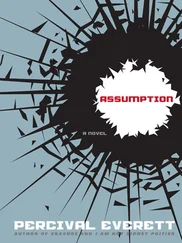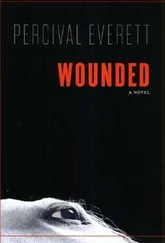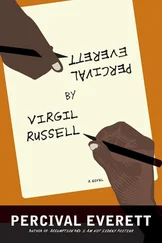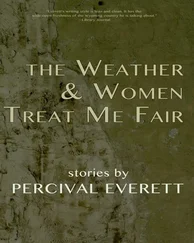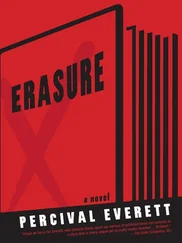“Yes,” I said. “Yes, but they also love that one drop. Like the way Bond loved you and will love her. Fleetingly.” I studied her face. “Tell me, do you really love that man?”
“He is so kind.” Her face did a dreamlike thing, it became long, then fat and I had to think to fix it and I was not sure it was ever the same.
“The devil is often kind. He controls with his kindness. His darkies collect and sing him praises for his kindness. They huddle together and parade like a single creature behind that wagon he calls kindness. He kills with his kindness.”
“You ask me why I love him,” Michelle said, her dead-doll eyes locked on mine. “Why do you hate him so?”
“You don’t need to ask that.” I realized I was still holding my hat in my hands. I was nervous because I had no place to go. “So, this woman upstairs, who has been dragged from her home, sold on the block, she cannot accept her blood?”
“Cannot and will not, Raz-ru.”
“She may soon wish that her blood will accept her.”
“She will not,” she said.
“Then she is more than a fool. She is stupid.”
And in the dream, the words felt strange in my mouth, the faces seemed in soft focus, no hard edges, no sharp contrasts, except that rage burned inside me, my not so much feeling it as knowing it. The slaves irritated me with their love of singing. Michelle irritated me with her love of Bond. I irritated myself with my artificial dignity, my station as boss Negro, a meaningless designation. The chorus of slaves appeared in the kitchen. Swing low, sweet chariot, coming fo’ to carry me home. With the awful music as background I wondered about the pale woman upstairs and wondered why her blood mattered to any of us, except of course that she, like us, was property, and somehow it was an offense that she did not care or that she was incapable of holding that fact in her head. The choir of slaves kept singing, and I turned to shout at them, “Would you niggers please shut the fuck up!”
They looked shocked, taken aback.
“Just shut the fuck up,” I repeated.
Grumbling, they disbanded, and the scene broke away into pieces, and I found myself being asked by Bond to sing a song for him and his sea captain visitor. Though I did not want to, I could not stop the song from finding my throat. My mouth opened and out it poured while I tasted bile. “Blow the man down,” I sang, and as I did, my voice deeper than usual, I sought to punctuate it with irony that of course fell on deaf ears. “Give me some time to blow the man down,” I sang the last line and then walked away from them as a storm approached.
Finding myself in the room of the new mulatto princess I was at once confused, outraged, and saddened. I could find no words to share with her, and it soon became clear to me that she was not only unaware of my presence, but unable to see me. The wind blew the French doors open wide, and the curtains danced like loose sails. Samantha Moon tried to push against the wind to close the doors, but she was beaten back. Then Bond dashed in from the veranda and, as if fighting a wind that possessed agency, he closed the doors and locked them. He went to Samantha Moon and helped her to her feet. They stared deeply into each other’s eyes, as deep as they could stare, and kissed. I wanted to puke over and over while they wrestled through brief and uninteresting sex, not knowing why I was made so sick, not knowing why they were having sex. All this while a slave who looked just like Barry White stood at the foot of the bed singing, “Can’t get enough of your love, babe.”
Spiraling around and around I found myself standing on the deck of a riverboat. As it docked dozens of black people gathered on the hill beyond the dock and began to sing, sing in that mellow and sweet-sad and sickening way of gospel music, sing praises to the master arriving home. I followed Bond and Samantha Moon off the boat and across the dock. There he placed her on the seat of a buckboard that had been decorated with magnolia blossoms and red and white ribbons, and he stood in the bed of it. The wagon carried him and his mistress to the plantation, the singing Negroes dancing behind, singing, cakewalking, grinning, grinning, grinning. One short, spry, bald black man high-stepped the whole way beside the wagon. I lagged behind, wondering at once what I was doing there as Raz-ru and what I was doing in this dream that certainly could not be my own.
Samantha Moon was standing on the veranda wearing a veranda-standing dress, her light skin catching the moonlight. She was asking me why I hated Bond and why I hated her. I told her that I did not hate, but that I was sad for her, for her inability to accept herself, for her refusal to acknowledge her real self. She glided across the room and went on about Bond.
“He has raised you like a son, even broken the law to teach you to read. He never beats any of you,” she said.
“You?” I repeated.
She look upon me, puzzled.
“You mean us. ”
She stepped more fully into the moonlight, I imagined to appear whiter.
“Oh, yes, he’s a good master. Good ol’ massa Hamish. He sho nuff good. He don beat us or nothin’.” I stared at her. “How would you describe a relationship where one of the good things to say was ‘he doesn’t beat me’? Do you know about his past?” I asked.
“He told me all about it. How he was a slave trader, and he was known as Captain Strike Down and about the Rio Ponga. He told about the burning village that haunts his dreams. He also told me that it was not only white men doing evil, but blacks as well. He told me about Geezo, the black king whose men were burning the village. He told how they would split open heads and run their fingers through the brains of still-living people. He told me all of it, Raz-ru.”
“And you believed him. I suppose you would want to. Poor rich Hamish Bond, living with the guilt of ruining so many lives. I don’t see him sharing his wealth with the ruined. No, he stays rich and we stay slaves because there were black men as evil as him. So says he. It is his burden to care for us.”
Then stuff happened, as stuff happens in dreams, things that I either cannot remember or in fact didn’t happen, though it seems like those things, forgettable as they apparently are, must have happened. But there I was, knowing that Bond had left the plantation only to test Samantha’s love by leaving her alone to the advances of Charles DeMarion, evil neighbor slave owner, beater of slaves, raper of slaves. Knowing also, as I stood outside the closed doors of the drawing room that Samantha Moon was in there with Charles DeMarion and that I would be running in to save her from his inevitable attempt at rape.
And so I did respond to her cry for help and why, I’m not certain. Would I have run in to save a dark slave from his raping hands? Was it her carriage? The way she believed herself to be white? Was I defending her honor? Defending white womanhood? Or was it, sicker still, my attempt to protect the property of the master I so hated? I hated myself as I ran across that room. I pulled him away from her, and he began to beat me with the crop he always carried. I stood tall and punched him. All this while a choir of black voices floated over us, singing, “I Shot the Sheriff.”
Michelle came running into the room, looked at the unconscious DeMarion and then to me. “Run, Raz-ru! Run before he calls the sheriff!”
I ran. I ran for all I was worth, which was a pretty penny I was told, through the acres of tall cotton, through the towering stands of sycamores, over the eroding levee and into the stagnant and stinking swamp where I knew my white pursuers would not follow — not into the swamp, into the deepest of black backwater, full of poisonous snakes and angry gators and long nights with light from only wild eyes. I was happy to be there. A wet hell, but a quiet heaven. All the singing was hushed.
Читать дальше

